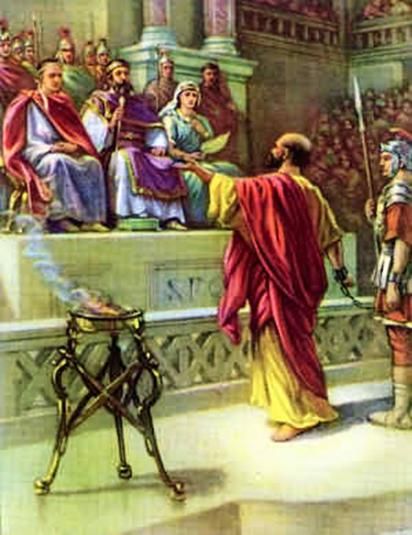Paul’s Trial before Agrippa (Acts 25: 23-27, Acts 26: 1-32)
Topic Content:
- Paul’s Trial before Agrippa (Acts 25: 23-27, Acts 26: 1-32)

Paul’s Trial before Agrippa (Acts 25: 23-27, Acts 26: 1-32):
The next day, King Agrippa and Bernice came into the auditorium with a lot of pageantry (elaborate display or ceremony). The auditorium was filled with the commanders and prominent men of the city, and then at Festus’ command, Paul was brought in.
You are viewing an excerpt of this Topic. Subscribe Now to get Full Access to ALL this Subject's Topics and Quizzes for this Term!
Click on the button "Subscribe Now" below for Full Access!
Subscribe Now
Note: If you have Already Subscribed and you are seeing this message, it means you are logged out. Please Log In using the Login Button Below to Carry on Studying!



Responses